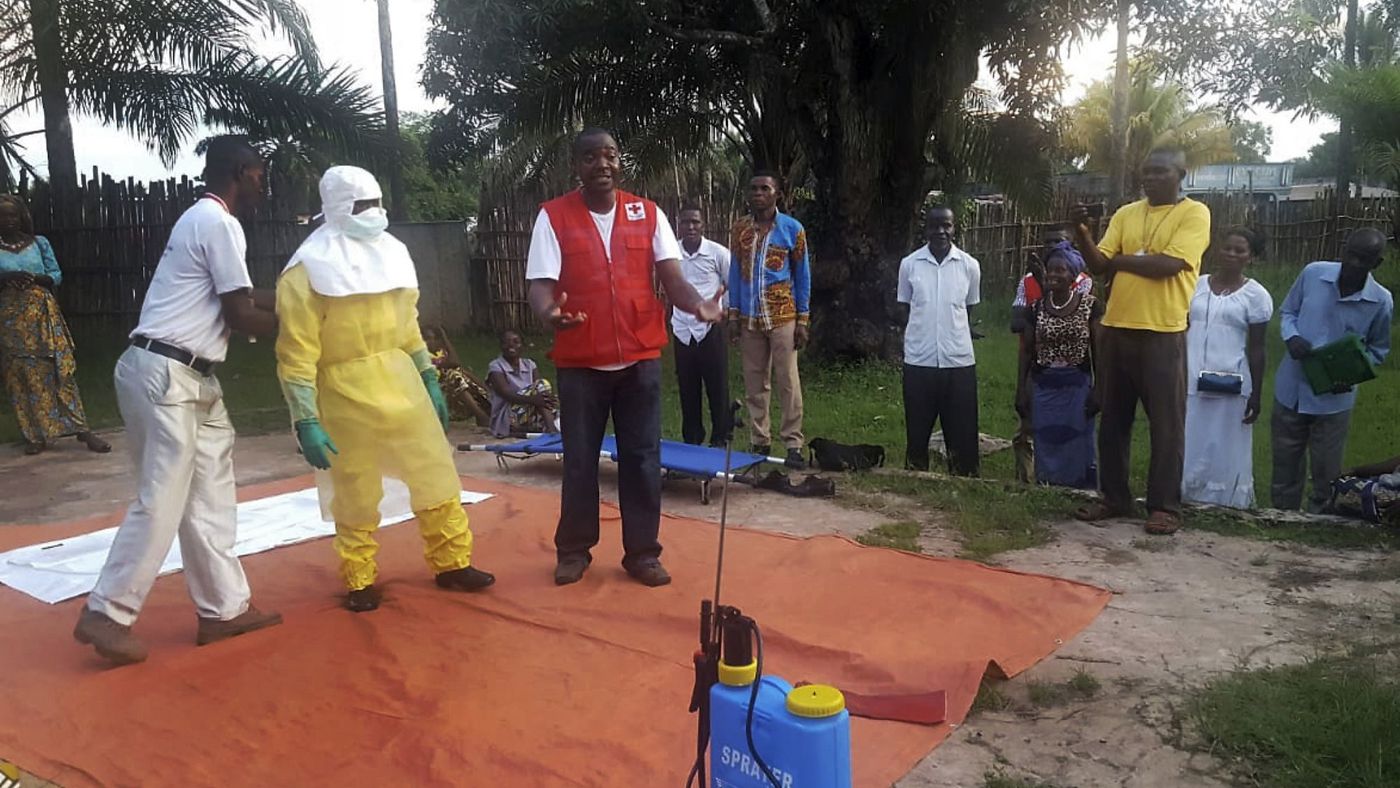Ebola outbreak in DRC deepens
May 25, 2018 | Expert Insights

The World Health Organization has sounded an alarm that the Democratic Republic of Congo is on an "epidemiological knife's edge,” with regards to the recent outbreak of the Ebola virus. The deadly virus has already claimed the lives of at least 22 people. Some reports have also suggested that two patients have “escaped” hospitalization thus sparking fears of the virus spreading.
Background
The region that is now the DRC was first inhabited about 80,000 years ago. Bantu migration arrived in the region from Nigeria in the 7th century AD. For millennia, the DRC was part of the ancient Kingdom of Congo. The Congo was colonized by Belgium from 1908 to 1960. Initial Belgian forays into the Congo were initiated by King Leopold II. Belgium has been highly criticized for atrocities conducted during this time. Conflict and violence has played a major role in the existence of the DRC.
After an uprising by the Congolese people, Belgium surrendered to the independence of Congo in 1960. However, Congo was left unstable because tribal leaders had more power than the central government. The First Congo War, which occurred between 1996 and 1997, was a foreign invasion led by Rwanda, which replaced President Mobutu Sésé Seko with the rebel leader Laurent-Désiré Kabila. The Second Congo War began in August 1998 after the Rwandan genocide of 1994. The war officially ended in July 2003, however violence in the region has continued.
The country’s mineral wealth and economic resources have fuelled violence further as malicious players have tried to get their hands on the nation’s riches. Various groups have taken advantage of the anarchy to plunder natural resources. Violence is stoked by ethnic divisions. A large UN peacekeeping force has been established in the east of the nation in order to keep the militia under control.
Ebola
The Ebola Virus Disease (EVD) is a severe illness in humans. The approximate case fatality rate is 50%. The first outbreaks of Ebola occurred in 1976 in remote Central African villages, near tropical rainforests. The Democratic Republic of Congo was one of the first places where the disease was identified. The small Yambuku village, centre of one of the first outbreaks, is located near the Ebola River, from which the disease gets its name.
It is believed that the disease was introduced to humans due to close contact with infected animals such as gorillas or fruit bats in the rainforest, or through infected bushmeat. Ebola can be spread through human to human transmission. In women who have been infected while pregnant, the virus persists in the foetus. Symptoms of the disease include fever, muscle pain, vomiting, diarrhoea, rash, and symptoms of impaired kidney and liver function.
Analysis
DRC’s Ministry of Public Health has revealed that since the outbreak on May 8th, at least 22 people in the country have died as a result of the Ebola virus. Now, the World Health Organization has noted that the nation is at the cusp of an “epidemiological knife’s edge,” with regards to the Ebola outbreak. WHO Deputy Director Dr. Peter Salama said noted that “the few weeks will really tell if this outbreak is going to expand to urban areas or if we're going to be able to keep it under control.”
It has also now been reported that two patients “escaped” from a treatment centre in the country. There is now a greater concern of the virus spreading even further. A third patient was also expected to leave a treatment facility without being cured. Rosie Slater, a spokeswoman for Doctors Without Borders said, "In all three cases every effort was made by staff at the hospital to convince the patients -- and their families -- not to leave and to continue their treatment," Slater said. "However, forced hospitalization is not the solution to this epidemic. Patient adherence is paramount."
An effort is underway to find out everyone who came into contact with the patients once they left, said Tarik Jasarevic, a World Health Organization spokesman. "It is unfortunate but not unexpected. It is normal for people to want their loved ones to be at home during what could be the last moments of life," Jasarevic said. "We are working with local community leaders, traditional leaders and healers, and religious leaders to better engage with communities so that we understand each other better and can work together in stopping the outbreak."
Assessment
Our assessment is that the escape of two untreated patients poses a serious threat to not only DRC, but also its neighbouring nations in Africa. In addition, if the Ebola outbreak spreads to eastern reaches of the country, conflict could hinder treatment, and aggravate the spread of the disease. We believe that the study of lethal infectious diseases is a necessity, particularly when these diseases disproportionately affect countries in the developing world.








Comments